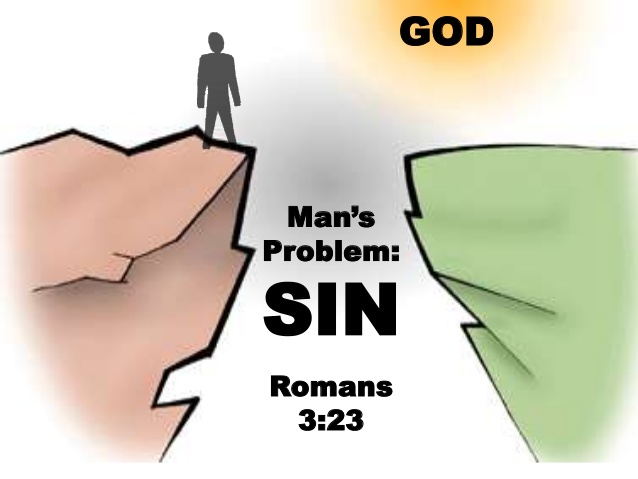Sin defined biblically, particular sins, the consequences of sin, and God’s antidote against sin.
Short Answer
Sin is breaking God’s law. (1 John 3:4)
Long Answer
Most people believe in right and wrong. Just listen to any argument. Whenever you hear someone say “ought”, “should”, or “shouldn’t”, that person is appealing to a standard someone else is breaking. It’s an acknowledgment that there is a right and a wrong – at least in their mind. This sense or rightness and wrongness is universal. Everyone believes some things are right and other things are wrong.
But how do we determine what is right or what is wrong? The best way to define right and wrong is by God’s word. He created everything (Genesis 1:1) and orders the universe (Hebrews 1:3). That’s why he has the right to declare things good or evil – right or wrong. That which is wrong is sin.
In this post, I aim to define sin biblically, show how the Bible describes sin, identify particular sins, explore the consequences of sin, and finally demonstrate God’s antidote against sin.
Sin is Autonomy
The Bible offers a simple definition of sin in 1 John 3:4b: “sin is lawlessness.” Sin is breaking the law of God. Simple enough. But it goes deeper than that.
In the beginning, God placed a man and woman in the Garden of Eden. In that Garden, he gave the man, Adam, permission to eat of every tree in the garden, but commanded him not to eat of one of those trees. Moses recounts…
And the LORD God commanded the man, saying, “You may surely eat of every tree of the garden, but of the tree of the knowledge of good and evil you shall not eat, for in the day that you eat of it you shall surely die.” (Genesis 2:16-17)
So God gave Adam a law to follow. Technically, the law was about not eating from a tree. But fundamentally, the law was about trust. Was man going to trust God or himself? Would man live by God’s law or by his own law?
Adam and his wife Eve chose to live by their own law (Genesis 3:5). They became autonomous (Latin: self-law) when they rejected God’s law and thus corrupting the entire human race by their autonomy. They sinned. Every person who followed after them were sinners, just like them.
How The Bible Describes Sin
The Bible describes sin in several ways like sin, iniquity, slipping, fault, falling, willful ignorance, refusing to hear God’s word, disobedience, and more. Taken together, this concept of sin encompasses what sinful autonomy looks like.
Here are a few more ways the Bible characterizes sin…
- Sin crouches at your door to have you. (Genesis 4:7)
- Sin is rebellion against the LORD. (Deuteronomy 9:7)
- All people sin. (1 Kings 8:46)
- Sin makes us dirty in in need of cleansing. (Psalm 51:2)
- People are born into sin. (Psalm 51:5)
- Iniquity controls a person. (Psalm 119:133)
- Sins sweep people away. (Isaiah 64:6)
- Those who continually commit sins are slaves to sins. (John 8:34)
- Sin is falling short of God’s glory. (Romans 3:23)
- The wages of sin is death. (Romans 6:23)
- Sin is idolatry: something that takes God’s place. (Colossians 3:5)
- Sin is hostility against God. (James 4:4)
- Knowing the right thing to do and not doing it is sin. (James 4:17)
- Sin is walking in darkness. (1 John 1:6)
In these verses, we see what it looks like when people trust themselves more than they trust God. Autonomy points people away from God and toward destruction – the ultimate consequence of sin. But sin is more than autonomy – there are specific ways people sin against God.
Types of Sins in the Bible
The Bible is also specific about types of sin. Pastor Jack Wellman identifies several sins in the Bible that are derived from the Ten Commandments (Exodus 20:3-17). These sins include (but are not limited to)…
- Not loving God with all your heart, mind, soul, etc. (Mark 12:30)
- Not loving your neighbor as yourself (Mark 12:31)
- Lawsuits against Christians (1 Corinthians 6:1-8)
- Not remembering the Sabbath (Exodus 20:8-11)
- Not meeting with the church (Hebrews 10:25)
- Irreverent use of God’s name (Exodus 20:7)
- Speaking badly of parents (Leviticus 20:9)
- Sexual immorality (1 Corinthians 6:18-20)
- Dishonoring parents (Exodus 20:12)
- Talking to the dead (Leviticus 19:31)
- Homosexual acts (Romans 1:26-27)
- Hitting your parents (Exodus 21:15)
- Unforgiveness (Matthew 6:14-15)
- Laziness (2 Thessalonians 3:10)
- Pornography (Matthew 5:27-28)
- Over love of self (2 Timothy 3:1)
- Love of money (1 Timothy 6:10)
- Complaining (Philippians 2:14)
- Blaspheming (Revelation 13:6)
- Crude joking (Ephesians 5:4)
- Tempting God (Matthew 4:7)
- Idol-making (Leviticus 26:1)
- Dissention (Proverbs 16:28)
- Gossipping (1 Timothy 5:13)
- Drug abuse (Proverbs 20:1)
- Sensuality (Galatians 5:19)
- Disobedience (John 14:15)
- Gluttony (Proverbs 23:21)
- Stealing (Ephesians 4:28)
- Cursing (Ephesians 4:29)
- Anger (Matthew 5:21-22)
- Complaining (James 5:9)
- Bribery (Proverbs 15:27)
- Idolatry (Colossians 3:5)
- Abortion (Exodus 20:13)
- Adultery (Proverbs 6:32)
- Hypocrisy (Matthew 7:5)
- Greed (Proverbs 28:25)
- Sorcery (Exodus 22:18)
- Murder (Exodus 20:13)
- Lying (Proverbs 12:22)
- Boasting (James 4:16)
- Slander (Psalm 101:5)
- Coveting (Luke 12:15)
- Lust (Matthew 5:28)
- Hate (1 John 3:15)
- Pride (James 4:6)

Image credit from slideshare.net
Consequences of Sin: Estrangement From God & Hell
Like a condemned murderer standing before the state court, a sinner stands before God judged. God knows everything, including the secrets of our hearts (Psalm 44:21). And he knows everything you or I did from the above list of sins.
God will judge our sin. Ecclesiastes 12:14 says, “For God will bring every deed into judgment, with every secret thing, whether good or evil.” If this is true, who can stand before God and not be judged? And what is the punishment for our sins?
Firstly, we become estranged from God by our sins (Isaiah 59:2). We are separated from God in this life – we live apart from him, despite our efforts to get back to him. Secondly, when we die we go to permanent estrangement from God in hell.
Hell is eternal, conscious punishment for our sins. Hell is not the acting out of a sadistic, Hitleresque god. Instead, it is the Creator Lord’s just punishment for rebellious humans and angels. It is not masochism, but retributive justice.
The Book of Revelation declares, “But as for the cowardly, the faithless, the detestable, as for murderers, the sexually immoral, sorcerers, idolaters, and all liars, their portion will be in the lake that burns with fire and sulfur, which is the second death.” (Revelation 21:8).
Salvation From Sin: Faith In Jesus
But hell is not the end of the story. In fact, God in his mercy sent his Son, Jesus to be the propitiation for sins (1 John 2:2). Instead of sending every sinner to hell, God chose to save some through the sacrificial death of his son. Though we are all deserving of death and judgment, we can be saved through faith in Jesus the Christ (John 3:16).
Sin has horrendous consequences. And apart from Christ, every person who has ever lived has sinned (Romans 3:23). But God offers a pardon for sin through faith in his Son, Jesus.
Conclusion: Sin Is Breaking God’s Law But God Offers Forgiveness
There are many ways to describe sin in the Bible. Sin is breaking God’s law, turning astray, missing the mark, and more. Ultimately, sin is an expression of our autonomy. Sin leads us to estrangement from God and eternal judgment in hell.
But God has provided an antidote against the poison of sin: forgiveness through faith in Jesus. If you are already a Christian, praise God you will not endure the punishment for your sins and you are reconciled to God. But if you are not a Christian, then call out to God for mercy while there is still time. God will save everyone who calls on the name of the Lord (Romans 10:13).
Resources
- BibleFood.com: 7 Words for Sin in the New Testament
- Jack Wellman’s: A List of Sins From The Bible
- Bible.org: What Is Sin?








